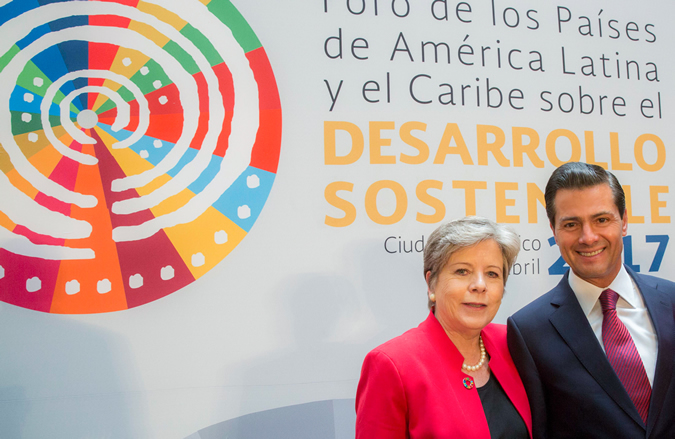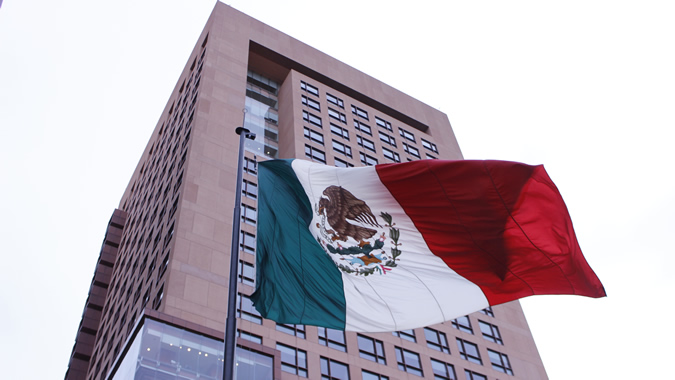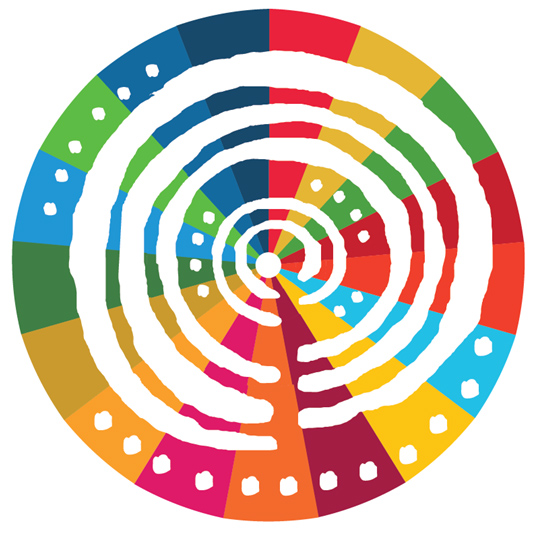With a Call to Revitalize Multilateralism and Regional Integration, the Forum of the Countries of Latin America and the Caribbean on Sustainable Development Began in Mexico
President Enrique Peña Nieto inaugurated the first meeting of the regional mechanism created in 2016 for follow-up on the 2030 Agenda today, in the National Palace, along with Mexican Foreign Affairs Secretary Luis Videgaray and ECLAC’s Executive Secretary, Alicia Bárcena.

“As a region we share the challenge of forging our own vision for the adequate instrumentation of the 2030 Agenda,” the President of the United Mexican States, Enrique Peña Nieto, said today during the inauguration in the National Palace of the first meeting of the Forum of the Countries of Latin America and the Caribbean on Sustainable Development, which will be held through Friday in Mexico City, under ECLAC’s sponsorship.
The Forum, the president indicated, “is a privileged space for exchanging successful public policy experiences, strengthening our cooperation schemes and it constitutes an opportunity for enriching each nation’s strategy with the aim of making the 2030 Agenda for Sustainable Development a reality.” The 2030 Agenda was approved in 2015 within the United Nations.
By the end of this year, at least 14 countries from the region, including Mexico, will have presented their voluntary national reviews to the United Nations High-Level Political Forum (HLPF) on Sustainable Development, President Peña Nieto said, highlighting as well the induction of the National Council for the 2030 Agenda on this very Wednesday in a prior ceremony. This Council will coordinate Mexico’s efforts relating to implementation of the Agenda and its 17 goals.
“Mexico agrees with the assessment of ECLAC (the Economic Commission for Latin America and the Caribbean): we are living through a period of global uncertainty and drastic changes in economic, social and political arenas, which threaten the progress of our nations,” Peña Nieto said. He therefore called on countries in the region to work “so that unity, cooperation and integration prevail as the central pillars of regional development,” in a way that “prioritizes multilateral agreements as a sign of our global responsibility.”
During her speech, Alicia Bárcena, ECLAC’s Executive Secretary, thanked the Mexican government for its support in carrying out the first meeting of the Forum (created in 2016 during the United Nations regional body’s last session) and praised the induction of the National Council for the 2030 Agenda, which demonstrates the Mexican State’s long-term commitment to this issue.
In line with what the president expressed, Bárcena underscored that “the Forum of the Countries of Latin America and the Caribbean on Sustainable Development will allow us to speak with our own voice in the debate regarding implementation of the 2030 Agenda.” A voice that expresses shared wills without denying regional heterogeneity and that is able to incorporate different views: those of countries that have no coastline, of small island states, and of the 28 countries categorized as middle income, among others, she said.
In a review of the economic and social situation of Latin America and the Caribbean, the senior United Nations representative highlighted that after two years of economic contraction, growth of 1.1% in regional Gross Domestic Product (GDP) is expected in 2017 (Central America and Mexico will grow around 2.3% while South America will expand 0.6%).
Macroeconomic management has been prudent so far, but there is concern about the decline in investment, the stagnation in productivity and the persistence of structural gaps, she said. This scenario endangers regional efforts to lift the 75 million Latin Americans who still find themselves living in extreme poverty out of that situation, she warned.
“The region is capable of making original contributions to the global commitment that the 2030 Agenda entails,” but this requires “reviving multilateral cooperation and regional integration,” Bárcena summarized, applauding the multi-actor nature of the new regional forum, which will gather together through Friday representatives of governments, national parliaments, international bodies, integration organizations, international financial institutions and development banks, the private sector, academia and civil society.
“Latin America and the Caribbean must be able to reinvigorate regional integration, which is fragmented and weak today, to use it as an instrument for productive diversification and capacity strengthening. At a national level, a new generation of policies on social matters, education and productive development are needed that insert the region in the new technological revolution, where innovation, growth with social inclusion and environmental protection converge,” Bárcena stated.
Mexican Foreign Affairs Secretary Luis Videgaray indicated, meanwhile, that “today is an important day for Mexico and for our region,” in reference to the induction of the National Council and the inauguration of the Forum. “Undoubtedly each nation must take up the effort to achieve sustainable development,” he said; however, “from a careful reading of not just the 17 SDGs but also of their 169 targets, it becomes clear that many of them can only be achieved through cooperation and teamwork among nations.”
Other participants in the Forum’s inauguration included María Guadalupe Murguía, President of the Board of the Chamber of Deputies; Blanca Alcalá, Vice President and representative of the President of the Board of the Chamber of Senators; José Antonio Meade, Secretary of Finance and Public Credit; Rafael Pacchiano, Secretary of Environment and Natural Resources; Rosario Robles, Secretary of Agrarian, Territorial and Urban Development; Lorena Cruz, President of the National Women’s Institute; Enrique Cabrero, Director-General of the National Council of Science and Technology; and María Angélica Luna, Head of the National Institute for Social Development.
Created as the regional follow-up mechanism on implementation of the 2030 Agenda, the Forum seeks to provide peer learning opportunities through voluntary reviews, the exchange of good practices and the discussion of shared goals.
The Forum’s full programme is available on the website: http://foroalc2030.cepal.org/2017/en
You can follow all the details of the meeting on social media with the hashtags #ForoALC2030 and #LACForum2030.
More information:
- Inaugural speech by Alicia Bárcena, ECLAC’s Executive Secretary.
- How to Follow the Forum of the Countries of Latin America and the Caribbean on Sustainable Development.
For queries, contact:
Guido Camú, Officer-in-Charge of ECLAC’s Public Information Unit. Email: prensa@cepal.org; Telephone: (56 2) 2210 2040; Cell phone: +52 1 55 8099 2239.
María Luisa Díaz de León, Public Information Officer at ECLAC’s Subregional Headquarters in Mexico. Email: marialuisa.diaz@cepal.org; Telephone: (52 55) 41705665; Cell phone: +52 1 55 5416 9297.
Related event
Related content

How to Follow the First Meeting of the Forum of the Countries of Latin America and the Caribbean on Sustainable Development in Mexico
All panels at the annual meeting will be broadcast live on April 26-28. The invitation on social networks is to participate in the debates using the hashtags #ForoALC2030 and #LACForum2030.

Inauguración del Primer Foro de los Países de América Latina y el Caribe para el Desarrollo Sostenible
Intervención de Alicia Bárcena, Secretaria Ejecutiva de la CEPAL.
Subregional headquarter(s) and office(s)
Subregional Headquarters, MexicoRelated link(s)
Country(ies)
- Latin America and the Caribbean
- Mexico
Contact
Public Information Unit
- prensa@cepal.org
- (56 2) 2210 2040
